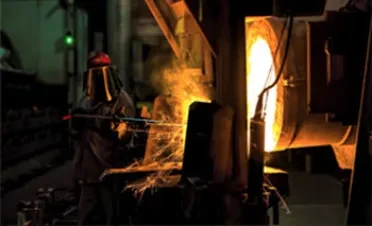High-Quality Precision Manufactured Cast Components for Enhanced Performance and Durability
The Importance of Precision Cast Parts in Modern Manufacturing
Precision cast parts play a crucial role in various industries, from aerospace and automotive to medical devices and electronics. As manufacturing processes become more advanced, the demand for high-quality, intricately-designed components has surged. Understanding the significance of precision casting, its benefits, and its applications is essential for industries striving for excellence in their products.
Understanding Precision Casting
Precision casting, often referred to as investment casting, involves creating intricate metal parts by pouring molten metal into a cavity that is formed using a wax pattern. This process offers several advantages over traditional machining methods, including the ability to produce complex shapes with tight tolerances and high dimensional accuracy. Additionally, precision casting allows for a more efficient use of materials, reducing waste and lowering production costs.
The process begins with the creation of a wax pattern, which is coated with a ceramic shell. Once the shell hardens, the wax is melted away, leaving a hollow ceramic mold. Molten metal is then poured into this mold, allowing it to take shape. After the metal cools and solidifies, the ceramic shell is broken away to reveal the precision cast part, which requires minimal machining.
Advantages of Precision Cast Parts
1. Complex Geometries One of the most significant benefits of precision casting is its ability to produce complex geometries that would be challenging or impossible to achieve with traditional machining techniques. This capability enables engineers and designers to create innovative components that enhance product performance.
2. Tight Tolerances Precision cast parts are known for their high dimensional accuracy, often achieving tolerances as tight as ±0.5 mm. This level of precision is particularly important in industries where exact specifications are critical, such as in aerospace applications where safety and performance are paramount.
3. Reduced Material Waste The precision casting process optimizes material usage, resulting in less waste compared to subtractive manufacturing methods. This not only lowers production costs but also contributes to more sustainable manufacturing practices.
4. Versatility in Materials Precision casting can be used with a wide range of materials, including various metals and alloys. This versatility allows manufacturers to choose the best material for their specific application, ensuring that the final product meets all performance requirements.
precision cast parts

5. Cost-Effectiveness While the initial setup for precision casting may require a significant investment, the long-term cost savings often outweigh these expenditures. The ability to produce complex parts in one step reduces the need for additional machining, which can lower labor and production times.
Applications of Precision Cast Parts
Precision cast parts are used in a myriad of applications across several industries
- Aerospace In the aerospace industry, precision cast components are critical for creating lightweight, high-strength parts that can withstand extreme conditions. Components such as turbine blades, housings, and engine mounts are often made using precision casting techniques.
- Automotive The automotive sector utilizes precision cast parts for engine components, transmission cases, and other vital components that require both strength and precision. These components not only enhance the performance of vehicles but also contribute to fuel efficiency and overall safety.
- Medical Devices Precision casting is employed in the production of surgical instruments and implants, where accuracy and reliability are paramount. The intricate designs of medical devices often necessitate the advantages provided by precision casting.
- Electronics In the electronics industry, precision cast parts are used for housings and brackets that protect sensitive components. The ability to produce small, complex parts with high accuracy ensures the reliability and functionality of electronic devices.
Conclusion
In conclusion, precision cast parts are indispensable in modern manufacturing. Their ability to produce complex geometries with tight tolerances, combined with reduced material waste, makes them a preferred choice across various industries. As technology continues to advance, the processes and applications of precision casting are likely to evolve, further enhancing its significance in the manufacturing landscape. Industries that embrace precision casting will gain a competitive edge, ensuring they meet the ever-growing demands for high-quality, innovative products.
-
Precision Sheet Metal Stamping Manufacturer | Fast & ReliableNewsAug.01,2025
-
OEM Sand Cast Pump Valve Fittings - Baoding Hairun Machinery And Equipment Trading Co., Ltd.NewsAug.01,2025
-
Custom OEM Impellers | High Efficiency & PrecisionNewsAug.01,2025
-
OEM Sand Cast Pump Valve Fittings - Baoding Hairun Machinery | Customization, Quality AssuranceNewsAug.01,2025
-
OEM Sand Cast Pump Valve Fittings - Baoding Hairun Machinery And Equipment Trading Co., Ltd.NewsAug.01,2025
-
OEM Sand Cast Pump Valve Fittings - Baoding Hairun Machinery And Equipment Trading Co., Ltd.NewsJul.31,2025















